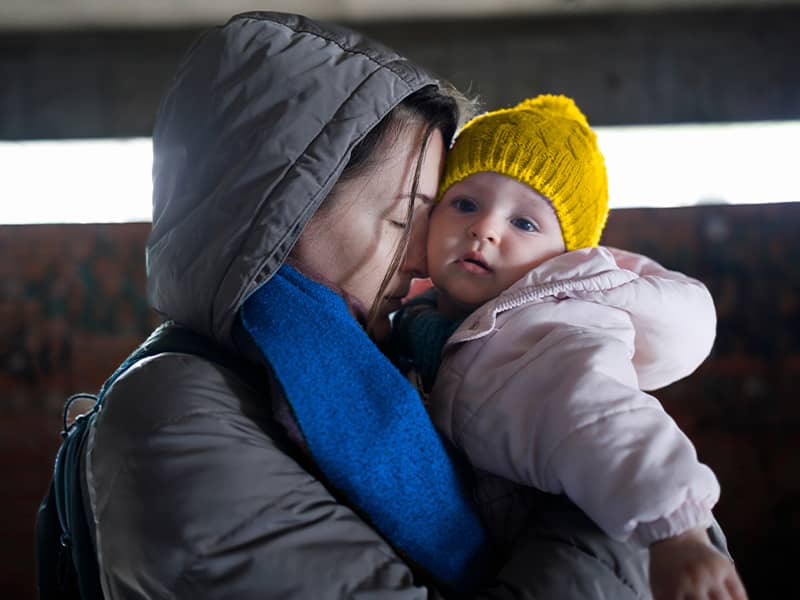Officials of the school in Wyncote studied the longstanding Christian practice known as spiritual direction as a resource to help their students discern the presence of God in their daily lives.
The practice was studied and adapted and is now in its fifth year at the college, where more than 60 percent of the students take part. "We wanted something that would go beyond the academic and professional training and speak to the inner lives of rabbis who need to be able to sustain themselves and sustain others spiritually," said Rabbi Jacob Staub, the school's academic affairs vice president and founder of the spiritual-direction program.
The Reconstructionist college is at the forefront of a new movement in Judaism, rabbis say. Seminaries, including the Conservative movement's Jewish Theological Seminary and the Reform movement's Hebrew Union College-Jewish Institute of Religion, have similar spiritual-direction services for their students. Beginning in 2004, the Reform school will make a spiritual-formation program mandatory for its rabbinic students.
Meanwhile, the Lev Shomea program at Elat Chayyim, a Jewish retreat center in Accord, N.Y., has 28 students from around the country currently enrolled in its two-year study program.
Spiritual direction is a dialogue between an individual and a guide (the director) who use prayer, discussion, readings and reflection to discern divine action in the person's life. It is a tradition that goes back to Hebrew Bible stories such as Eli's advising Samuel to listen to God's spirit. In the early church, believers sought the spiritual guidance of hermits who contemplated God in the solitude of the desert. "Spiritual direction is not counseling. It's a contemplative practice," said Barbara Breitman, a therapist, educator and pastoral counselor who supervises the Reconstructionist school's spiritual-direction program and teaches at the Lev Shomea program.
"The direction process deepens awareness so that your relationship with God starts to come into focus and be more real," Breitman said.
The practice is finding more adherents in Judaism at a time when many are searching for spiritual meaning, rabbis said. Hasidic rabbis as far back as the 18th century acted as spiritual guides to individuals in the community. The rabbi might also have an assistant, called a mashpia, who would help in spiritual development, said Rabbi Howard Avruhm Addison, president of the Greater Philadelphia Board of Rabbis and author of Show Me Your Way: The Complete Guide to Exploring Interfaith Spiritual Direction. Spiritual guidance is also offered to students at many Orthodox yeshivas.
But the practice wasn't accessible to people in the liberal Jewish community, Rabbi Addison said. And historically, the founders of the Reconstructionist, Reform and Conservative movements had distanced their traditions from Orthodoxy, reacting against what they felt were rigid mandates about behavior and prescribed thought, Rabbi Addison said. "The way spiritual direction has been developed in Christianity for the last several hundred years makes it more accessible," Rabbi Addison said. Also, he said, Jewish leaders have been careful to adapt the practice by using Jewish texts, language and ritual.
Still, some rabbis were apprehensive about using a Christian tradition. "In the course of the 19th century, Jews in the process of modernizing have defined Judaism in contrast to Christianity," Rabbi Staub said. " 'We're about behavior. They're about love.' Part of the discomfort was all this love talk."
The Christian literature was like reading a foreign language, Rabbi Staub continued. "'Discerning where the Holy Spirit manifests itself.' It was hard to understand."
Rabbi Edward Feld, a spiritual mentor to rabbinic students at Jewish Theological Seminary, agreed that the Christian approach, which assumes God's presence, can leave Jews "cold." "Christian spiritual direction goes more quickly to 'where is God in your life?' Jewish spiritual direction might start with 'what are the spiritual struggles you are going through now?' It is more concrete in terms of behavior."
Rabbi Staub dealt with apprehension in his own practice of spiritual direction. His director is the Rev. Susan Cole, pastor of Arch Street United Methodist Church in Center City. Ms. Cole is also Breitman's spiritual director. "We overcame [the apprehension] by going through spiritual direction and expressing our experiences in a Jewish idiom," Rabbi Staub said. "And the process of discernment is as Jewish as anything else."
Rabbi Yael Levy believes Jewish spiritual direction reflects a healing of relations between Jews and Christians. "There's been pain in a lot of ways, and I hope it represents a healing and that we feel more open to learn from the wisdom of that community," said Rabbi Levy, associate rabbi at Congregation Mishkan Shalom in Roxborough.
Spiritual-direction sessions, which are typically held monthly, often begin with silence or some kind of prayer. The seekers discuss events that have happened in their lives and whether they feel a closeness, or perhaps an increasing distance from God, Breitman said.
Those moments of deep emotion are the easiest to recognize, Ms. Cole said. "It could be a bird singing or an experience with a child in the family, but there is something that makes you notice the peace or joy or love," Ms. Cole said. "And then, it's spending time and knowing what it feels like to be with peace and joy and love, and letting God take over."

